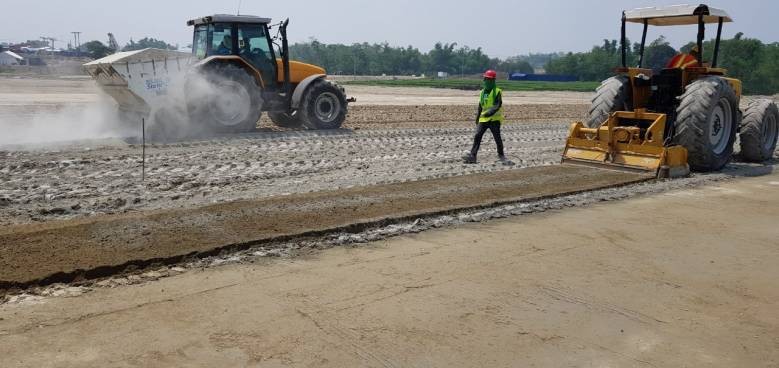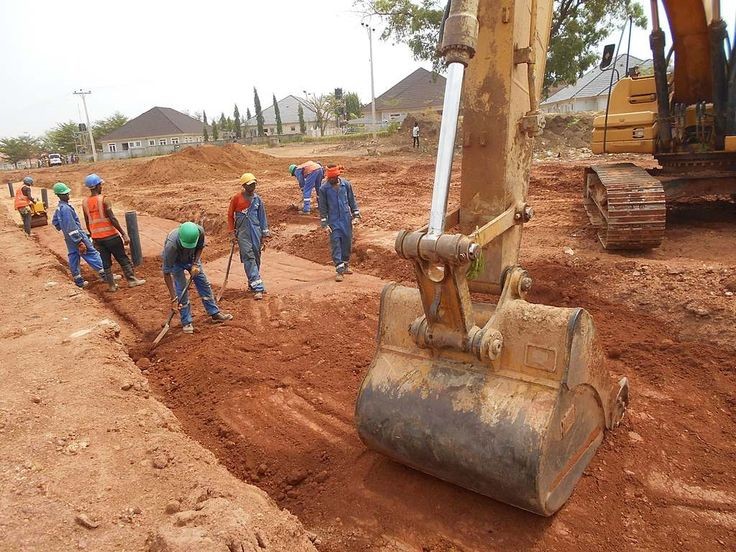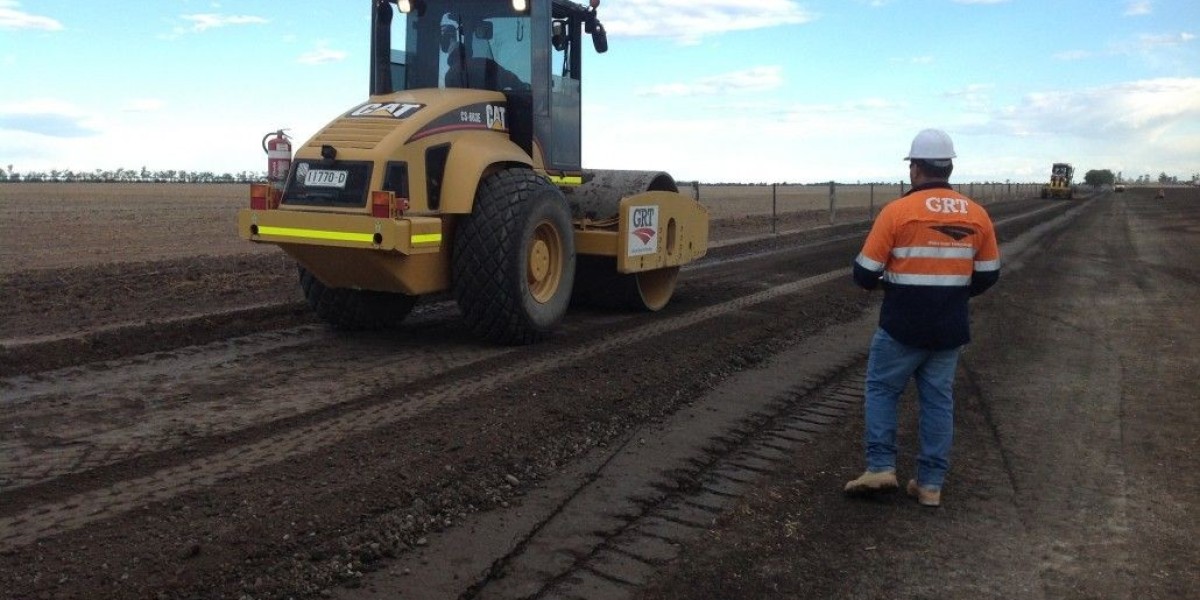Soil stabilization is a crucial process for ensuring the long-term stability and durability of a property’s foundation. Whether it’s for residential, commercial, or industrial properties, soil stability plays an essential role in preventing structural issues that can arise due to shifting or settling ground.
When soil is unstable, it can cause a range of issues such as cracks in foundations, uneven floors, and even sinking or tilting of the building itself. Proper soil stabilization is not only essential for the structural integrity of the property but also helps improve the overall safety and value of the land.
In this blog post, we’ll explore why proper soil stabilization is necessary and how it can benefit your property in the long term.
What Is Soil Stabilization?

Soil stabilization is the process of enhancing the physical properties of soil to improve its load-bearing capacity and minimize shifting or erosion. This can be achieved through various techniques, including chemical stabilization, mechanical stabilization, and the use of specialized materials.
The goal of soil stabilization is to create a strong, stable foundation that prevents soil erosion, movement, or degradation that could harm a structure built on it.
Why Soil Stabilization Is Important
1. Prevents Foundation Damage
One of the most significant concerns associated with unstable soil is the damage it can cause to a building’s foundation. As the ground shifts, the foundation may crack, settle, or become misaligned. These issues can lead to costly repairs and even compromise the safety of the property. By investing in soil stabilization, property owners can prevent these issues from occurring.
2. Improves the Safety of the Property
Unstable soil can lead to uneven surfaces, cracks, and even the sinking of portions of a property. These factors can be hazardous to the residents or occupants. By stabilizing the soil, these risks are minimized, leading to a safer environment for everyone.
3. Increases Property Value
A properly stabilized property is less likely to experience costly issues with the foundation or structural integrity. This stability increases the overall value of the property, making it more attractive to potential buyers or investors.
4. Reduces Long-Term Maintenance Costs
The cost of repairing foundation issues or addressing damage caused by unstable soil can quickly add up. By stabilizing the soil initially, property owners can avoid expensive repairs and the maintenance costs associated with foundation damage.
Methods of Soil Stabilization
There are several methods used to stabilize soil, each with its specific benefits. The choice of method depends on factors such as the soil composition, the type of structure, and the local environment.
1. Chemical Stabilization
This method involves adding chemical agents to the soil to alter its composition and increase its strength. Common chemical agents include lime, cement, or polymers. These agents help bind the soil particles together, making the soil more cohesive and less likely to shift or erode.
2. Mechanical Stabilization
Mechanical stabilization involves the physical manipulation of the soil to improve its properties. This may include compacting the soil or mixing it with other materials to increase its density. This process is often used in combination with other stabilization methods.
3. Geosynthetic Reinforcement
In some cases, geosynthetics, such as geotextiles or geogrids, are used to reinforce the soil. These materials are placed within the soil to provide additional strength and prevent erosion or displacement. Geosynthetic reinforcement is often used in areas where soil erosion or shifting is a significant concern.
4. Polyurethane Foam Injection
This innovative method involves injecting a specialized polyurethane foam beneath the soil. The foam expands to fill voids and cracks, stabilizing the soil in the process. This method is often used to address soil instability around foundations, sidewalks, and driveways.
How Soil Stabilization Can Benefit Properties in Baton Rouge, Louisiana

Properties in Baton Rouge, Louisiana, face unique challenges when it comes to soil stability. Due to the region’s clay-heavy soil and fluctuating weather patterns, many homeowners and business owners experience issues with soil movement, shifting, and erosion.
Soil stabilization in Baton Rouge is especially important because it helps to mitigate the risks of these soil-related problems, particularly after heavy rains or flooding. By investing in proper stabilization techniques, property owners can safeguard their structures from the potential dangers of soil instability, ensuring a long-lasting and secure foundation.
The Role of Polyco Spray Foam in Soil Stabilization
Polyco Spray Foam provides expert soil stabilization services in Baton Rouge and surrounding areas, offering solutions that can improve the safety, durability, and value of your property. Their team uses advanced techniques, including polyurethane foam injection, to stabilize soil and prevent further damage to foundations and structures.
They ensure that their soil stabilization methods are tailored to the specific needs of the property, considering factors like soil composition, moisture levels, and environmental conditions. With Polyco Spray Foam’s expertise, property owners can rest assured that their foundations are protected from soil-related issues.
FAQs About Soil Stabilization
1. How do I know if my soil needs stabilization?
Signs of unstable soil include cracks in the foundation, uneven floors, and visible shifting or sinking of concrete surfaces like driveways or sidewalks. If you notice any of these issues, it’s important to consult with a professional to assess the need for soil stabilization.
2. How long does soil stabilization last?
The longevity of soil stabilization depends on the method used and the conditions of the soil. In general, properly executed stabilization can last for many years, although regular maintenance may be needed in certain circumstances.
3. Can soil stabilization be done after construction?
Yes, soil stabilization can be performed even after a structure has been built. This can help address issues such as settling or shifting that may occur over time.
4. Is soil stabilization a cost-effective solution?
Soil stabilization is often more affordable than repairing foundation damage caused by unstable soil. It is a proactive measure that can help prevent costly repairs down the line.
5. Does soil stabilization work for all types of soil?
Soil stabilization can be effective for a wide range of soil types, including clay, sandy, and loamy soils. The method chosen will depend on the specific needs of the property and soil conditions.
Conclusion
Soil stabilization is an essential part of maintaining a stable, secure, and valuable property. Whether you're dealing with shifting foundations, sunken driveways, or uneven floors, stabilizing the soil beneath your property can help prevent long-term damage and reduce maintenance costs.
For residents and businesses in Baton Rouge, Louisiana, and surrounding areas like Prairieville, Gonzales, Denham Springs, Walker, Monticello, Merry Dale, Westminster, Shenandoah, Village St. George, Zachary, and Oak Hills, Polyco Spray Foam offers expert soil stabilization services to protect your property from soil-related issues.
Contact Polyco Spray Foam at 225-416-5896 for a consultation and ensure your property’s foundation stays secure and stable for years to come.



